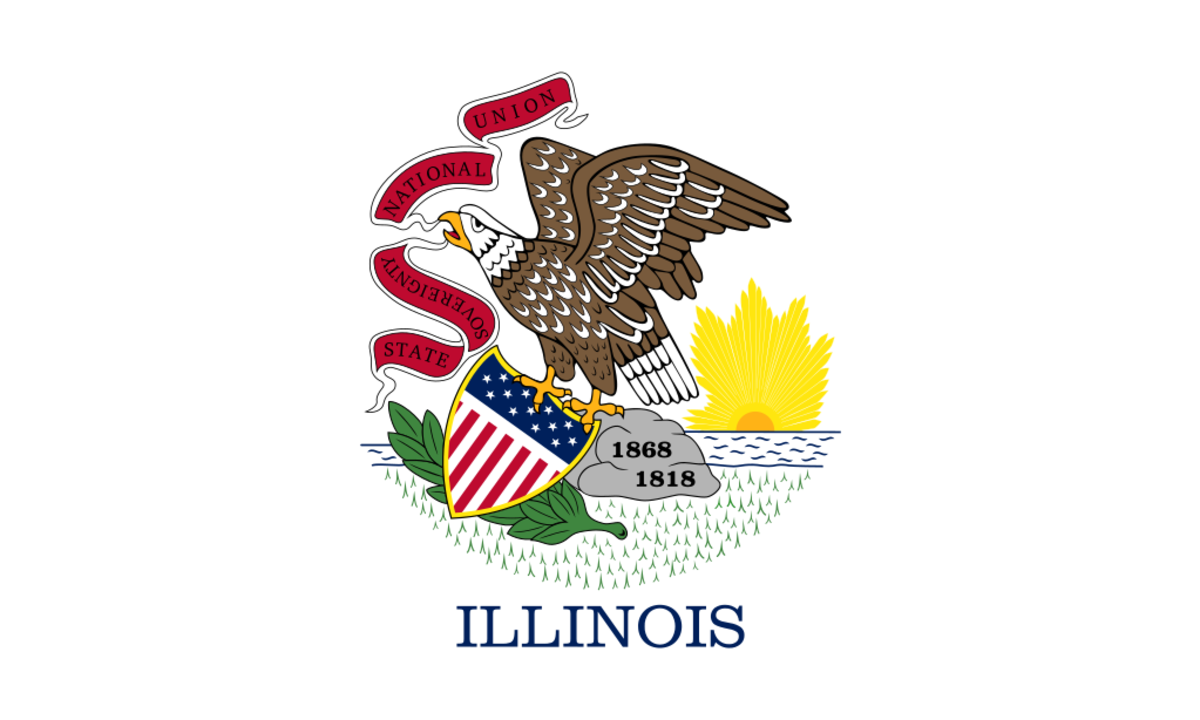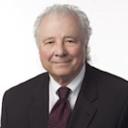Illinois Personal Injury Laws

Illinois is also known as "The Prairie State" because it used to be covered in prairie grass. It has vast fertile land, low hills, and corn fields. Its rich soil produces soybeans and livestock feed for export. In fact, it has traded goods internationally worth $8.2 billion and is the third largest agricultural exporter in the United States. While Illinois is known for its agriculture, it also has modern infrastructure, such as major roads and highways where considerable rates of road accidents and fatalities occur.
In 2022, the National Highway Traffic Safety Administration recorded more than 1,280 traffic-related deaths in Illinois. This figure was slightly lower than in 2021 and was not statistically significant. In the same year, 466 people were killed in car accidents on state highways, 419 on city streets, and 191 on interstates. There were also 182 fatalities on county or township roads.
Looking at the big picture, it can be seen that accident fatalities in Illinois have been on the rise. In 2021, there were more pedestrian fatalities than in the previous five years. The number of semi-truck fatalities increased in 2022 when compared to previous years.
Some of the most common causes of car crashes in the state are:
Speeding
Changing lanes unsafely
Aggressive driving
Distracted driving
Drunk driving
As for work-related incidents, fatalities due to accidents in the workplace saw a 9% increase in 2021, with over 5,000 recorded. A 2020 census by the Illinois Department of Public Health stated that contact with electricity, falls, and contact with deadly objects were some of the leading causes of work-related deaths in the state. On the other hand, back injuries, severe sprains, lacerations, and illnesses resulting from exposure to occupational hazards were some of the most common injuries workers in Illinois suffer from.
This article outlines Illinois’ laws on personal injury claims, their complexity and limitations, and the rights of those injured in the state. Additionally, it discusses the deadline for filing personal injury lawsuits as well as the exceptions for minors and those who suffered harm as a result of medical malpractice but did not discover it right away.
Illinois as a Modified Comparative Negligence State
In a "modified comparative negligence" state like Illinois, figuring out who is at fault for an accident is more complicated than just saying who caused it. To prove negligence, both the plaintiff's and the defendant's mistakes must be carefully examined.
If a jury finds that a plaintiff's actions contributed to their injury, the amount of money they are entitled to recover may be significantly reduced. For example, if the plaintiff is found to be 25% at fault, the damages are reduced by the same percentage. The same thing will happen if they are found to be 50% at fault. However, if the jury finds the plaintiff to be 51% or more at fault, they will be unable to recover any damages.
This legal process is based on the idea of "duty of care," which is how a person should act. The defendants and insurance companies may bring up times when the plaintiff failed to fulfill this obligation or acted irresponsibly or irrationally to show the plaintiff's role in the incident. By carefully looking at the plaintiff's actions, the parties hope to get a better understanding of the facts behind the accident and be able to assign blame more accurately.
Illinois Personal Injury Law on Emotional Distress
An accident, regardless of where or when it occurs, usually causes both physical and emotional pain. People who have suffered emotional distress, such as depression, insomnia, anxiety, or PTSD, may be compensated under Illinois law. They can file two types of claims for emotional distress if someone intentionally or negligently causes them harm.
Even though emotional distress is hard to prove because it is invisible and intangible, people who have been hurt can still get paid for it. To do this, emotional pain must show up in the body, such as a sudden drop in weight, loss of hair, or a heart attack. This will help prove that the emotional pain the person felt is real and caused by the other party.
Consulting with psychiatric professionals will help plaintiffs document injuries and emotional suffering, which will make calculating the worth of their emotional distress easier.
Illinois Workers’ Compensation Laws
Employees face different risks every day, whether they work in the rolling hills of Poplar Grove or at a skyscraper in Chicago. Under the state's workers' compensation law, employers are required to protect their employees with insurance.
Workers in Illinois are entitled to benefits if they become ill or injured on the job. Medical care, permanent partial and total disability, temporary partial and total disability, and death benefits are some examples.
In order to get workers' compensation in Illinois, an employee must tell their boss about their illness or injury within 45 days, either in writing or in person, and file a claim within three years. If an employee cannot work for more than three days, their employer must send an accident report to the Illinois Workers' Compensation Commission. The commission will then do the following:
Provide a written explanation for any additional information the employer requires;
Provide a written explanation for the denial of benefits; or
Start temporary total disability payments.
Government Liability Limits
Anyone who is harmed resulting from the negligence of a private person or business in Illinois may file a lawsuit. It is different, however, when the person or group at fault is a government entity, agency, or official. For example, if a person gets involved in a car accident with a public official or slips and falls on government property, filing a claim is handled differently. Because of the legal concept of "sovereign immunity," a private individual cannot sue the state of Illinois without its permission. To file a claim against the state government, you must go to the Court of Claims.
Under the Illinois Court of Claims Act, individuals who have suffered harm at the hands of a state agency or employee may file a claim the same way they are eligible to do so against a private individual or company. For instance, a person who had their car hit by a government employee could file an accident claim in the Court of Claims in the same way they could against a driver who was not a government employee. People who want to file a lawsuit against the government through the Court of Claims must do so within a year of the accident.
Illinois Business Liability Insurance Requirements
General liability insurance is not required by law in the state of Illinois. However, having it on hand is necessary to safeguard a company's interests in the event that a visitor sustains an injury on the premises due to a slip and fall accident. Likewise covering other things like libel and copyright violations, this insurance is an advantage to businesses.
In Illinois, businesses have to do more than just worry about general liability. Workers' compensation insurance must be given to employees, either through private companies or the state fund. This rule applies even to small businesses, which make up 99.6% of all businesses in the state. Despite their size, these enterprises collectively employ over two million individuals, making workers' compensation insurance essential for their operation.
Workers' compensation insurance is also required for companies with part-time employees. An employer who knowingly and intentionally fails to provide workers' compensation insurance may face a minimum fine of $10,000, with fines of up to $500 for each day of noncompliance. If the corporation fails to pay the fine, corporate officers may face personal liability.
Commercial auto insurance, which covers vehicles owned by a business, is also required by the state. Here are the requirements for commercial auto insurance in Illinois:
Passenger vehicles:
10–13 people: $100,000 for property damage; $1 million for bodily injury
14–20 people: $100,000 for property damage; $1.5 million for bodily injury
21–30 people: $100,000 for property damage; $2 million for bodily injury
31 or more people: $100,000 for property damage; $3 million for bodily injury
Vehicles for medical transport and various types of for-hire transport: $50,000 for property damage or $300,000 CSL; $250,000 for bodily injury
Property transport vehicles:
Hazardous substance carriers: $1 million to $5 million CSL, depending on the substance
Property carriers: $750,000 CSL
Tow truck operators: $500,000 CSL
How Much Can Someone Sue For an Injury in Illinois?
Personal injury laws in Illinois do not put a cap on how much a person can ask for in damages. This means that an individual who was hurt because of another's carelessness has the right to seek full compensation. For example, someone hurt in a car accident can sue the person who caused it to get the full amount of money they need to get better, whether they are in physical or emotional pain.
No matter how much the accident costs or changes their lives, people who get hurt have the right to ask for all of the money they are owed because of their specific situation. To figure out how much the plaintiff is owed, lost present and future income, out-of-pocket costs, and the cost of future medical care are all taken into account.
Here are some of the specific damages that may be recovered in a personal injury lawsuit in Illinois:
Lost income: This represents the amount of money the plaintiff has lost as a result of being unable to work;
Medical expenses: This category includes the cost of past and future medical care, such as prescription medication, doctor's visits, and hospital bills;
Property damage: This includes the cost of replacing or repairing damaged property, such as a home or car;
Wrongful death: If the injury caused the person’s death, their family members may recover damages by filing a wrongful death lawsuit.
For pain and suffering damages, there is no cap to what a person can claim under Illinois law, although documentary evidence such as medical records and bills are needed to quantify them. The severity of the injuries, the plaintiff’s health and age, and the length of pain and suffering are some of the factors taken into account when calculating how much a plaintiff’s pain and suffering is worth.
The Statute of Limitations in Illinois
Under Illinois personal injury laws, people who have been hurt in an accident must file a claim within two years of the date of the accident. This time limit applies to common instances in which people get hurt, such as on the job, in a car, or while walking. Individuals who want to sue for premises liability or product liability must also do so within two years of the incident.
Because Illinois has a statute of repose, there are cases with exceptions. For instance, a person can file a product liability claim not more than 12 years from the date of the product’s first sale. Illinois’ statutes of limitations may also be tolled if the plaintiff is a minor. Underage plaintiffs who sustain personal injuries may initiate a case within two years of turning 18 years old. However, the case is different when the minor’s personal injury case involves medical malpractice.
A person under the age of 18 must file a medical malpractice suit within eight years of the careless treatment or before the person turns 22. In addition, lawsuits resulting from sexual abuse that happened when the victim was a minor no longer have a statute of limitations in Illinois.
Adults who want to sue for medical malpractice in Illinois have a different statute of limitations. People have four years to file a personal injury lawsuit because they might not notice an injury that a medical professional caused right away.
Illinois’s Discovery Rule
Not all injuries are discovered right away; some are found years later. The discovery rule in Illinois is based on the idea that it is not fair to penalize a plaintiff for being unaware of their healthcare provider's negligence or injury. They cannot be expected to file a claim if they are unaware of their injury. The following are some examples of situations in which Illinois' discovery rule applies:
Surgery is performed on a patient to remove a tumor. Even when the procedure is successful, the patient goes on to experience a post-operative problem. It took months for the patient to recognize that the complication was a result of the surgery because it was not immediately obvious.
A doctor prescribed medication to a patient. The injury manifested itself after the drug was used for several weeks or months.
A doctor misinterpreted a diagnostic test that a patient had undergone. The patient received the wrong care as a result of the misread results, which led to harm.
During a medical operation, a patient sustained an injury that was not immediately obvious. The injury was not first noticed until the patient developed symptoms or experienced problems.
The discovery date is the time on which the plaintiff discovered or should have discovered the injury. It should be either the date the plaintiff was notified of the injury in writing or the date a reasonably prudent person would have discovered the injury.
Legal Resources for Injured Folks in Illinois
Illinois Legal Aid Online
Illinois Legal Aid Online is a nonprofit organization that helps people with all kinds of personal injury issues, like car accidents and slip-and-falls. It provides legal help 24/7, all year long, and has been doing so for more than 20 years. It gives people who do not have easy access to the legal system a chance to get justice. People who have been hurt and want to file a claim can use its tools and generate legal papers by finding the forms they need in its library. Its team regularly looks at Illinois law to keep up with changes and updates its tools in real time.
Illinois Free Legal Answers
Illinois Free Legal Answers gives virtual legal advice to people who need answers to questions about civil and consumer rights, health and disability, education, and juvenile law, among other things. This project of the Standing Committee on Pro Bono and Public Service of the American Bar Association is made possible by its team of volunteer pro bono lawyers. People who want help with personal injury cases might ask about health, disabilities, and civil rights.
Prairie State Legal Services
Prairie State Legal Services has been serving communities across Illinois since 1977. It operates 11 offices across the state to ensure that vulnerable and low-income people have equal access to fair treatment and justice. The independent nonprofit organization has assisted people facing a variety of legal issues, including a workplace injury victim, a disabled person, and an evicted tenant. Domestic violence and abuse, which may also be classified as personal injuries, are two of the primary issues addressed by the organization, as well as unsafe living conditions and unjust debt collection.
Expertise.com StaffAuthor
Step into the world of Expertise.com, your go-to hub for credible insights. We don't take accuracy lightly around here. Our squad of expert reviewers, each a maestro in their field, has given the green light to every single article you'll find. From rigorous fact-checking to meticulous evaluations of service providers, we've got it all covered. So feel free to dive in and explore. The information you'll uncover has been stamped with the seal of approval by our top-notch experts.

Kennith BlanReviewer
Ken is rated A-V by Martindale-Hubble, the highest score available from this independent, peer-reviewed rating system for attorneys nation-wide. Since limiting his practice to representing injured persons and families from the mid-1980s on, Ken has recovered millions of dollars for his clients and their loved ones. Visit: https://www.blanlaw.com/




